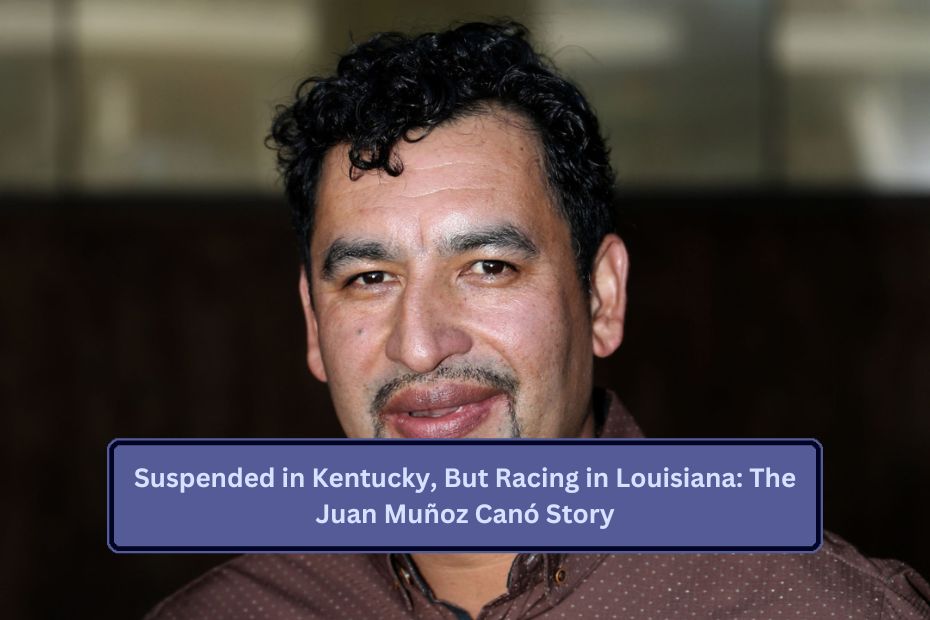Horse racing is no stranger to debates and controversies. The recent decision by Fair Grounds to redraw two races to include horses trained by a suspended Kentucky trainer, Juan Muñoz Canó, has stirred strong reactions. This article explains the key events, their significance, and the rules that caused the uproar.
Why Were the Races Redrawn?
Fair Grounds adjusted two races for Sunday’s card to include two of Muñoz Canó’s horses:
- Supremely (6-year-old gelding) in the first race, a $15,000 claiming sprint.
- Shortlist (11-year-old gelding) in the second race, a $5,000 claiming route.
Neither race had full fields, meaning no other entries were displaced. Despite the changes, Fair Grounds management and the Louisiana Racing Commission (LRC) declined to comment. Churchill Downs Inc. (CDI), the track’s owner, has also remained silent.
Background on Juan Muñoz Canó’s Suspension
Muñoz Canó, 39, was suspended in Kentucky following a drug violation linked to a tragic incident. His 2-year-old filly, La Bukana, suffered a fatal breakdown in an October race at Churchill Downs, and post-mortem drug tests revealed clenbuterol in her system.
- Who issued the suspension? Kentucky Horse Racing and Gaming Corporation.
- Why? Conduct deemed harmful to the sport.
- Pending review: Under federal rules, Muñoz Canó is entitled to have a second test done before final penalties.
Louisiana’s Unique Position
Unlike Kentucky, Louisiana operates outside the jurisdiction of the federal Horseracing Integrity and Safety Authority (HISA). The state is challenging HISA’s constitutionality, leading to differing rules and enforcement practices.
- Medication rules: Louisiana recently loosened regulations for drugs like clenbuterol and Depo-Medrol, which raised concerns among horsemen and critics.
- Tensions: In May, Churchill Downs threatened to cancel top stakes races at Fair Grounds unless stricter medication rules were reinstated. The LRC complied in June.
Why This Matters
This case raises important questions about horse racing governance and uniformity:
- Cross-state enforcement: Racing jurisdictions often honor each other’s suspensions. However, Louisiana allowed Muñoz Canó to continue racing, showing a divide in regulatory practices.
- HISA and state laws: The ongoing legal challenges to HISA complicate enforcement, creating inconsistencies that affect the sport’s reputation.
Fair Grounds’ decision to include horses trained by Juan Muñoz Canó highlights the challenges of regulating horse racing across different states. While Kentucky took swift action, Louisiana’s separate rules allowed the trainer to continue racing. This situation exposes the need for clearer, unified policies to uphold the integrity of the sport while balancing the interests of trainers, owners, and horse racing fans.
Visit Home

